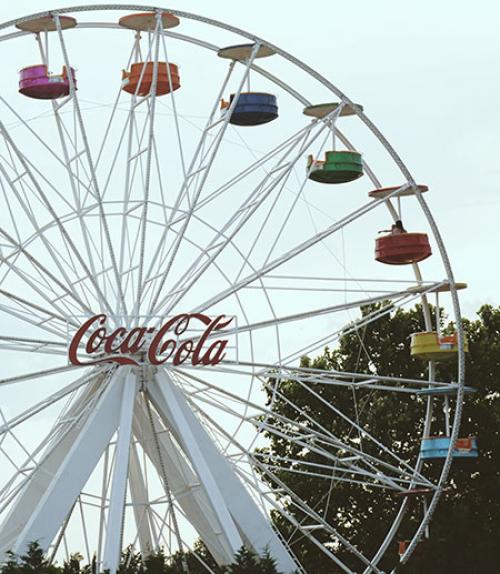This is an episode from the “What Makes Us Human?” podcast's third season, "What Do We Know about Love?" from Cornell University’s College of Arts & Sciences, showcasing the newest thinking from across the disciplines about the relationship between humans and love. Featuring audio essays written and recorded by Cornell faculty, the series releases a new episode each Tuesday through the fall semester.
What is a product, brand or food item that you love? And by that I mean something that you would mourn if you couldn’t get it anymore?
I’m a consumer psychologist and I study why and how consumers learn about products. The traditional way of thinking about this issue is that a product consists of attributes or features. We’ve assumed that over time consumers learn how best to maximize their choices by finding products that best match their preferences. It’s a very logical and reasoned approach. But it doesn’t really explain why consumers feel love for certain products or brands.
As it turns out, the most loved product is not the one with the most quality features. It might not be the highest priced wine that a sommelier loves, or the most intricately designed dessert a chef craves.
The key missing ingredient in our usual approach is that it overlooks the absolutely crucial role of emotion.
For example, in blind taste tests of Coke and Pepsi, Pepsi usually wins because it is sweeter. A group of researchers at Baylor College in Atlanta, which is the home of Coca Cola, used FMRI machines to study participant brain activity involved with this taste test. After the blind tasting, where Pepsi won, they told participants the brand names of the colas. They found that Coca-Cola loyalists’ brain activity overrode their tastes. Even if they preferred Pepsi when they tasted it blind, their brains preferred Coke. Love trumps taste when it comes to which brands they buy.
But what leads to such a strong emotional connection? My own work shows that consumer memories matter, particularly memories of important childhood events.
I developed a qualitative research method called early memory elicitation. It helps consumers go back in time to their early childhood. After that, I interview them about brands, products and experiences they’ve had. I ask them to talk about whether those childhood experiences have influenced what they do now. I’ve done this with hundreds of consumers with different types of products and experiences.
What I’ve learned is that if you’ve been introduced to a product before the age of 10 by a loved one (particularly a parent or grandparent), this can lead to a longing for that product later in life. It’s during those early childhood years that these strong attachments form. A product introduced during this time becomes more than a product, it becomes a marker for that loving relationship and can be linked to our sense of identity. For example, when interviewing consumers about Coca-Cola in the deep South, I found some reported that they went from breast milk to Coke. The brand continues to be a staple for them in their households. For others the brand was more associated with a “special treat” such as visiting their grandparents and being offered a Coke in the cold signature glass bottle. Later in life, those consumers reward themselves with a Coke after a hard day’s work.
So ask yourself: what brands or products do you crave when you’re alone, or feeling ill? We refer to these as “comfort foods” as the things that make us feel safe and secure. And most of these brands or products have a childhood connection.
Marketers (like me) understand this. Ten percent of ads evoke nostalgia, and this percentage is higher during times of crisis like wars or financial downturns. What’s interesting is that nostalgic advertising works even when our past isn’t that positive – remembering an earlier time through a brand or product experience makes us feel better today no matter how bad our childhood was. So if your own childhood memory involves HoHos, or Nutella, or Frosted Flakes, don’t resist that temptation. It’s OK to love a brand that might not necessarily be haute cuisine because those brands remind us of who we are and where we’ve been.




